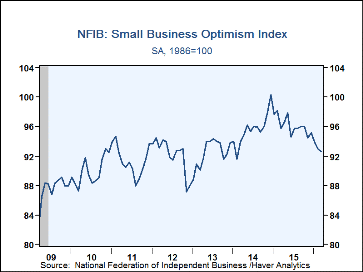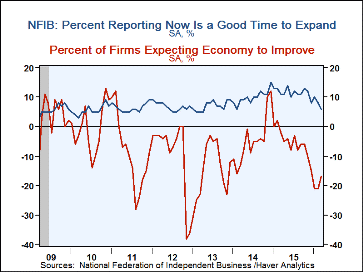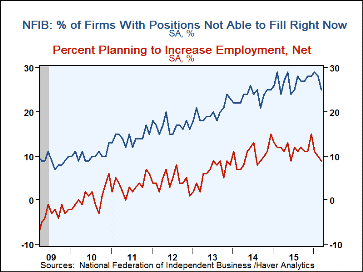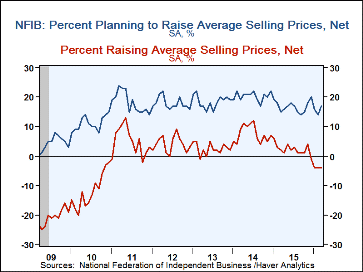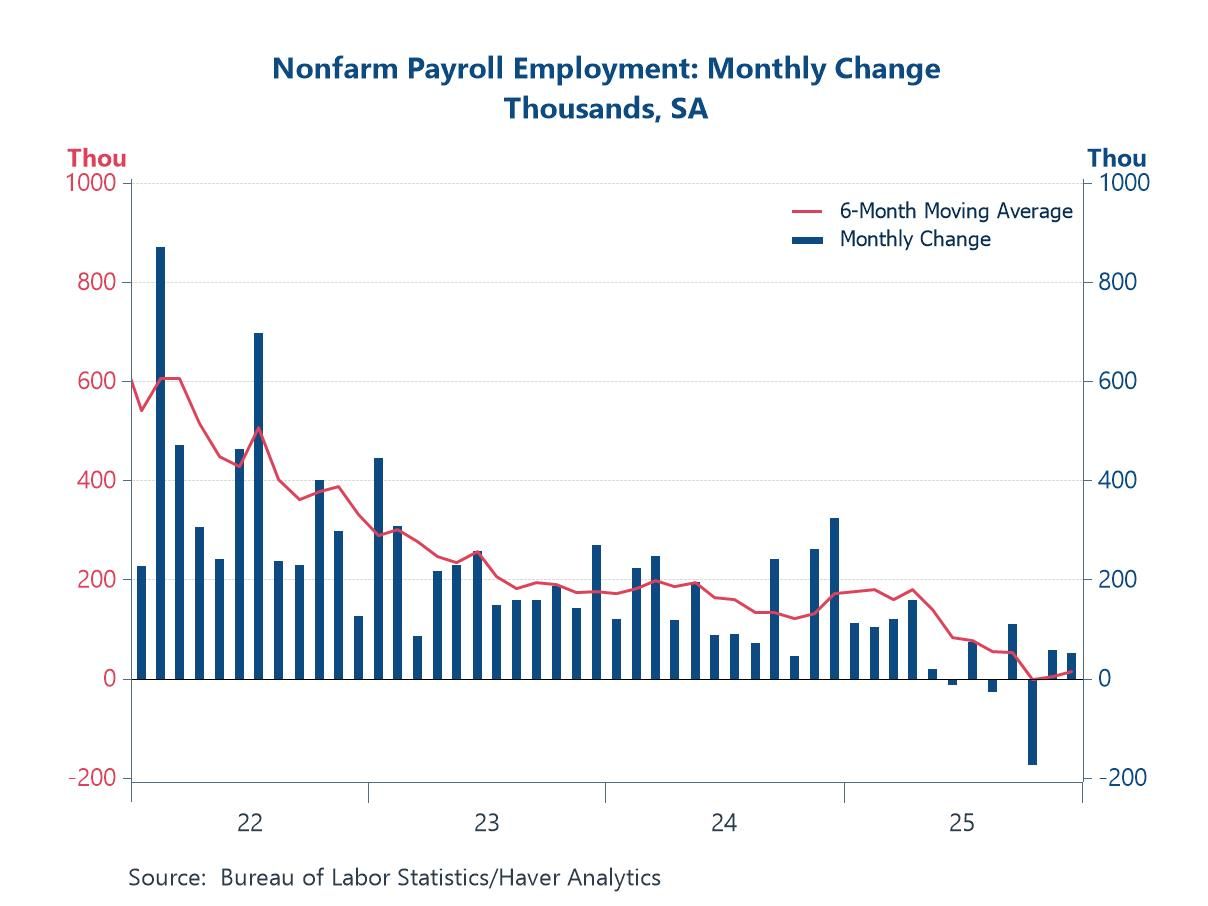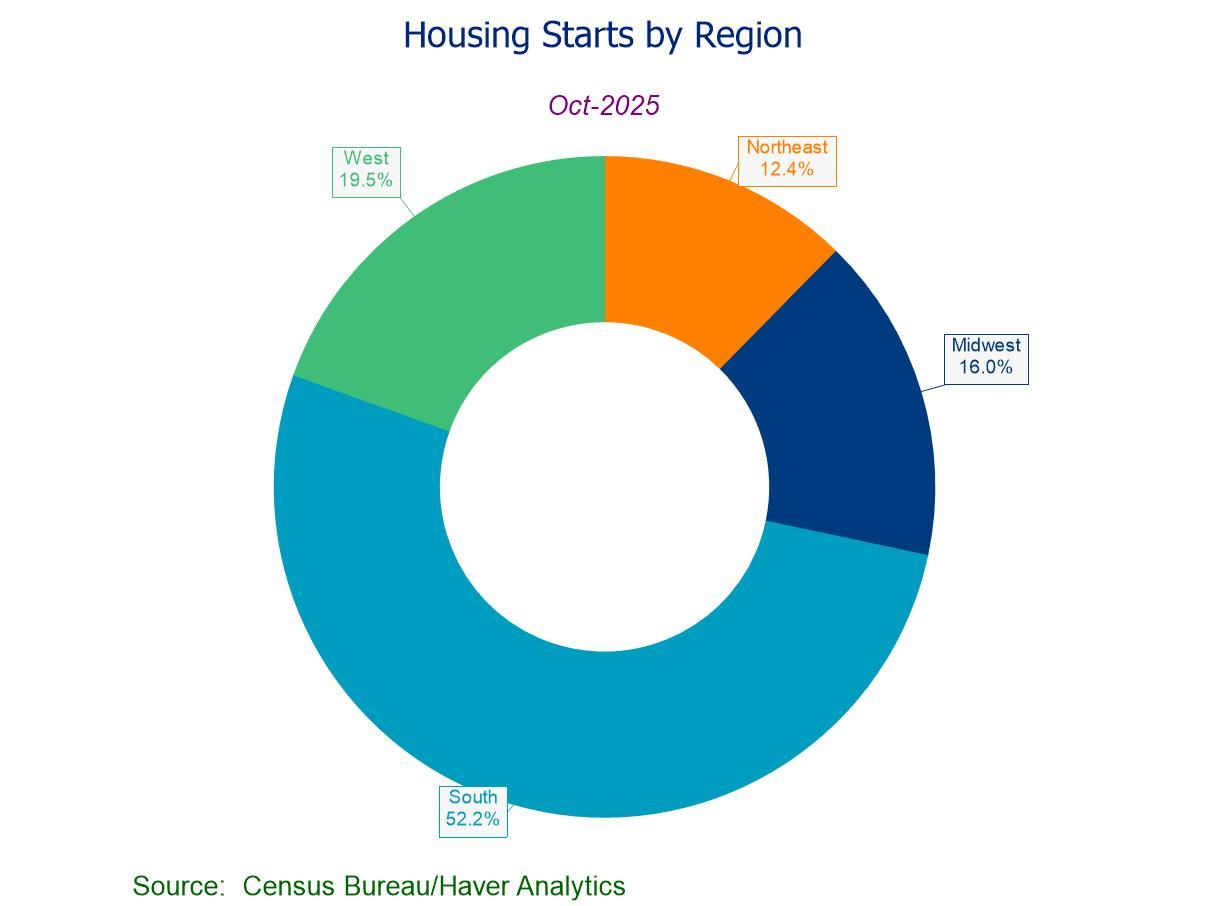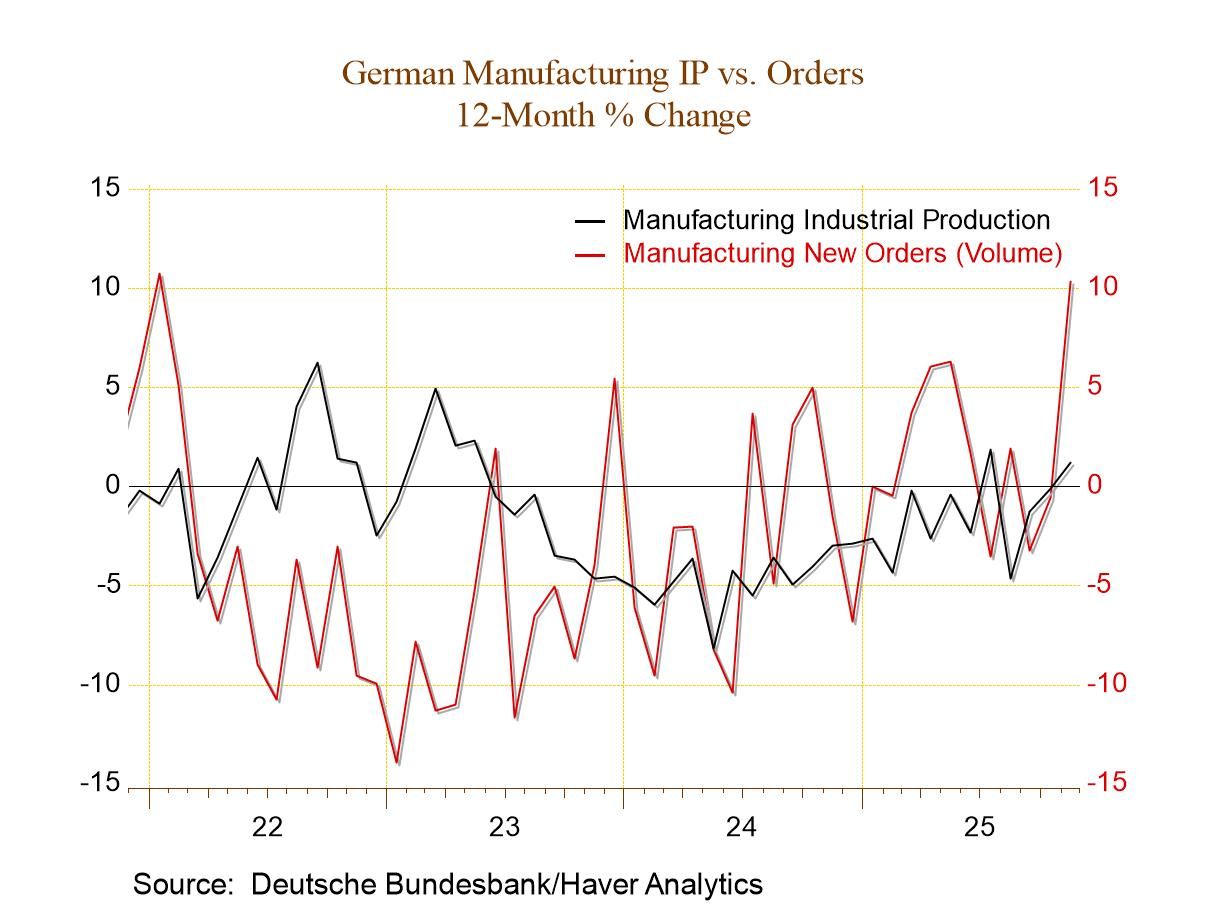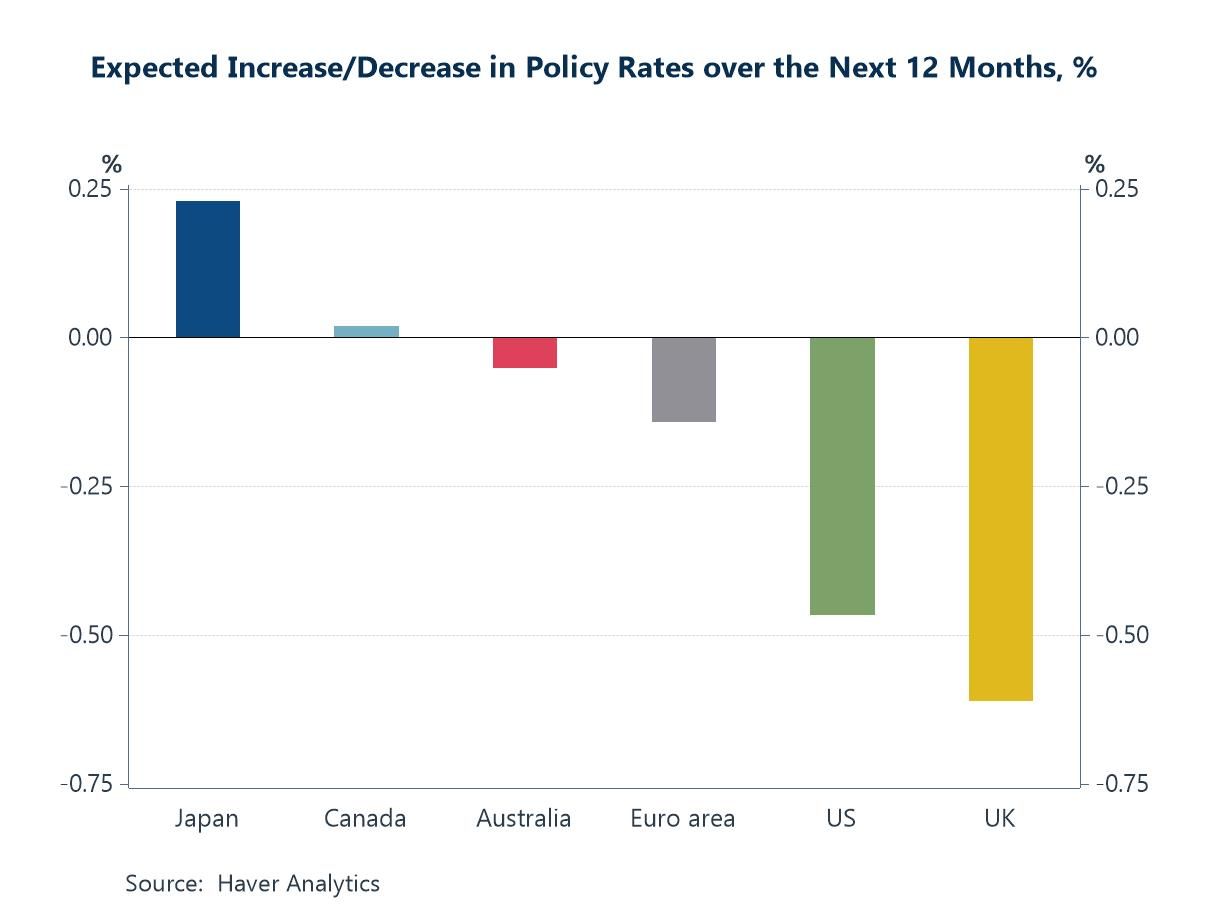 Global| Apr 12 2016
Global| Apr 12 2016U.S. Small Business Optimism Deteriorates Further
by:Tom Moeller
|in:Economy in Brief
Summary
The National Federation of Independent Business reported that its Small Business Optimism Index eased 0.3% during March to 92.6 following a slightly revised 1.1% February fall. It was the fourth decline in the last five months and [...]
The National Federation of Independent Business reported that its Small Business Optimism Index eased 0.3% during March to 92.6 following a slightly revised 1.1% February fall. It was the fourth decline in the last five months and left the index at its lowest level since February 2014. According to the NFIB, the March level remained below the 42-year average of 98.
A sharply reduced 6 percent of firms reported that now was a good time to expand the business, as expectations for the overall economy remained dour. One percent of firms expected higher real sales in six months, nearly the lowest in five months. Weaker economic conditions are hurting corporate profitability. Profits were expected to decline by the greatest percentage of firms since October 2014.
Economic weakness is lessening firms' inclination to hire. Nine percent of firms expected to increase employment, the least since June, while a lessened 41% of respondents found few or no qualified candidates to fill job openings. A reduced twenty-five percent of firms had positions they were not able to fill right now. A stable 22% of firms raised worker compensation over the last twelve months, but an improved 16% were expecting to raise it in the next three months, the most since December.
Small businesses' ability to improve pricing remained under pressure. A stable four percent of firms were lowering prices. Expectations, however, about the future ability to raise prices improved slightly. Seventeen percent of firms were planning to raise prices, the most in three months. A stable 22 percent of firms were raising employee compensation while 16 percent were planning to raise it.
Credit remained slightly more difficult to get as 5% reported trouble, up from 3% at the low. A reduced 31% of firms felt satisfied that their borrowing needs had been filled in the last three months.
A higher 22% of firms indicated that taxes were the single most important problem and an increased 21% reported government requirements were the largest single problem. A stable 12% felt challenged by the quality of labor. An increased 13% of firms indicated that poor sales was the largest single problem, and its been moving higher for four months. A reduced 8% reported insurance cost & availability as the largest problem. A stable 8 percent reported competition from large businesses as the largest problem. A reduced 5% reported the cost of labor was the biggest problem, and inflation was indicated by a lesser 2% of respondents.
Roughly 24 million small businesses exist in the U.S. and they create 80% of all new jobs. The typical NFIB member employs 10 people and reports gross sales of about $500,000 a year. The NFIB figures can be found in Haver's SURVEYS database.
| National Federation of Independent Business (SA, Net %) | Mar | Feb | Jan | Mar'15 | 2015 | 2014 | 2013 |
|---|---|---|---|---|---|---|---|
| Small Business Optimism Index (1986=100) | 92.6 | 92.9 | 93.9 | 95.7 | 96.1 | 95.6 | 92.4 |
| Firms Reporting Now is a Good Time To Expand the Business | 6 | 8 | 10 | 11 | 11 | 10 | 7 |
| Firms Expecting Higher Real Sales In Six Months | 1 | 0 | 3 | 14 | 8 | 11 | 4 |
| Firms Expecting Economy To Improve | -17 | -21 | -21 | -2 | -5 | -5 | -15 |
| Firms Planning to Increase Employment | 9 | 10 | 11 | 12 | 12 | 10 | 6 |
| Firms With Few or No Qualified Applicants For Job Openings | 41 | 42 | 45 | 42 | 46 | 43 | 39 |
| Firms Reporting That Credit Was Harder To Get | 5 | 5 | 5 | 5 | 4 | 6 | 6 |
| Firms Raising Average Selling Prices | -4 | -4 | -4 | 2 | 2 | 8 | 2 |
Tom Moeller
AuthorMore in Author Profile »Prior to joining Haver Analytics in 2000, Mr. Moeller worked as the Economist at Chancellor Capital Management from 1985 to 1999. There, he developed comprehensive economic forecasts and interpreted economic data for equity and fixed income portfolio managers. Also at Chancellor, Mr. Moeller worked as an equity analyst and was responsible for researching and rating companies in the economically sensitive automobile and housing industries for investment in Chancellor’s equity portfolio. Prior to joining Chancellor, Mr. Moeller was an Economist at Citibank from 1979 to 1984. He also analyzed pricing behavior in the metals industry for the Council on Wage and Price Stability in Washington, D.C. In 1999, Mr. Moeller received the award for most accurate forecast from the Forecasters' Club of New York. From 1990 to 1992 he was President of the New York Association for Business Economists. Mr. Moeller earned an M.B.A. in Finance from Fordham University, where he graduated in 1987. He holds a Bachelor of Arts in Economics from George Washington University.


